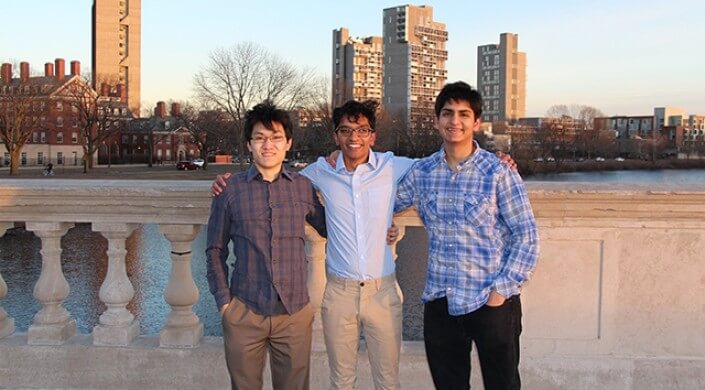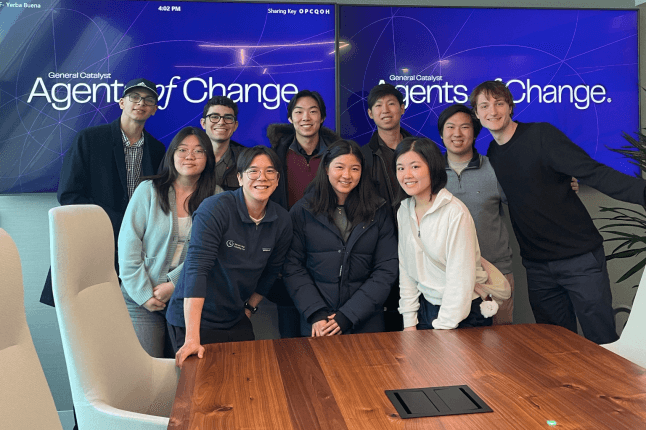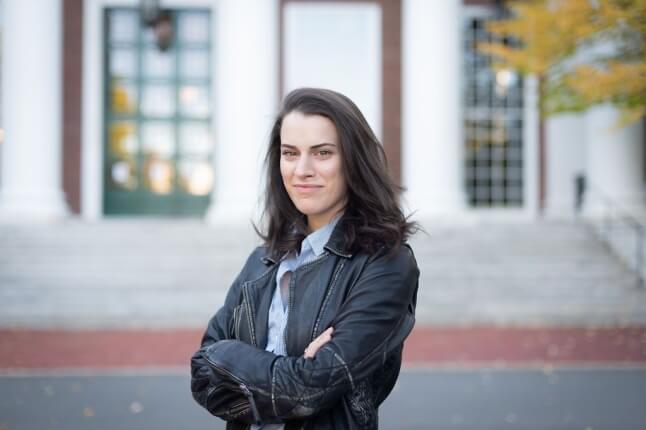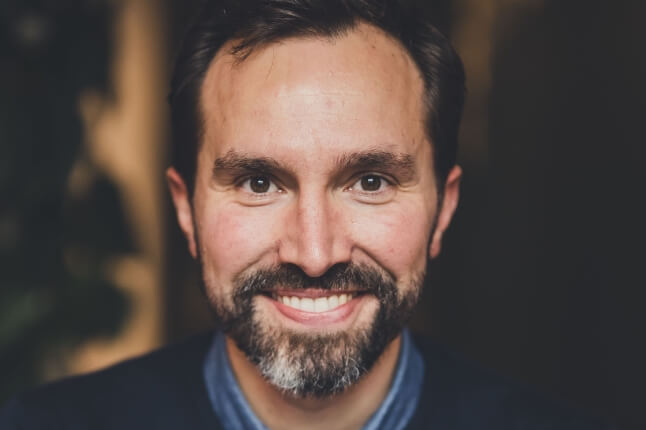News
Troav co-founders (from left) George Moe, Harshal Singh, and Varun Jain, computer science concentrators, want to give users a chance to explore, try new things, and test out products they might be thinking about buying. (Photo courtesy of Troav)
Harshal Singh didn’t pack his cricket bat when he moved to the West Coast for a summer internship. But after he learned that a few of his officemates were avid cricketers, he looked for a way to rent a bat so he could join their games.
Unable to find one, he resigned himself to a cricket-less summer.
That experience inspired Singh, A.B. ’20, a computer science concentrator at the Harvard John A. Paulson School of Engineering and Applied Sciences, to launch a startup, Troav, to fill a void he found in the world of short-term rentals.
“With Troav, we wanted to change the temporary ownership model to make it more suitable for the technology we have now and what people are looking for,” he said. “We want to let people explore, try new things, and get their hands dirty with products they wouldn’t have thought about trying out before. If you’re not paying for each individual use, you can say, ‘hey, I have a free weekend, maybe I’ll try out this tent, or I’ll check out this speaker I’ve been thinking about buying.’”
Troav users pay for a monthly membership that gives them access to an inventory of hundreds of items—everything from footballs to ironing board to ping pongs tables to pots and pans.
Users with a basic membership can check out one item for three days at a time, visiting the Troav inventory during business hours for self pick-up. Gold users can check out two items at once for five days and also access free delivery. The Troav app enables users to explore the inventory, check out items, and provide feedback.
The entire inventory is owned by the Troav team, with items currently stored at the Harvard Innovation Labs. The team is working at the iLab as part of the 2019 Summer Venture Incubation Program.
“One of the biggest challenges we faced initially was capital. We were worried about needing to buy all these items for the inventory,” said co-founder George Moe, A.B. ’21, a computer science concentrator. “But fortunately we were able to work out this idea of a marketing partnership. That solved a lot of our worries because now we can get the bulk of our inventory for free or at a low cost.”
Troav’s rental model enables companies to introduce potential customers to products they might never have encountered and give them a chance to try out items before purchasing. The platform also collects detailed feedback from users, which can provide valuable insights for companies, Singh said.
One of the startup’s first partnerships was with Chippo Golf, which produces a lawn game similar to cornhole, except players use a golf club to launch balls toward the holes in a raised platform.
“People in Boston probably don’t know about Chippo Golf, but what better way to market it to them than to have them actually use it?” Singh said. “Our Troav supply partners see this as a unique way to market their brand and have potential customers actually use their products, so they give their products to us for free.”
Singh, Moe, and co-founder Varun Jain, A.B. ’20, also a computer science concentrator, relied on advice and support from the student entrepreneurs in Startup R&D (ES 95r), taught by Paul Bottino, Executive Director of Innovation Education, as they refined their business model.
The team recently launched Troav as a pilot for Harvard summer school students. They plan to spend the next few months fine-tuning the platform to meet the needs of customers. An entire section of the app is dedicated to feedback, where users can not only share information about products they’ve used, but provide suggestions of items they’d like to see in the inventory.
“The big vision is to see this grow to a level where people are sharing items all over the country,” Singh said. “People often buy things, use them a few times, and then they just end up sitting around. With appropriate scaling of Troav, we can have a lot less waste, have a lot more efficient use of our resources, and also give manufacturers a novel way to promote their products.”
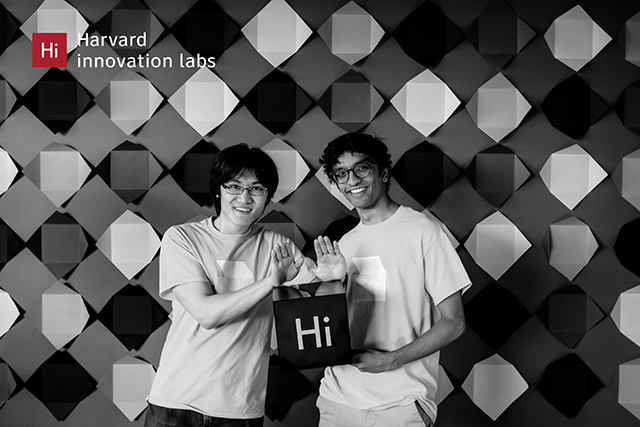
Topics: Computer Science, Entrepreneurship
Cutting-edge science delivered direct to your inbox.
Join the Harvard SEAS mailing list.
Press Contact
Adam Zewe | 617-496-5878 | azewe@seas.harvard.edu
